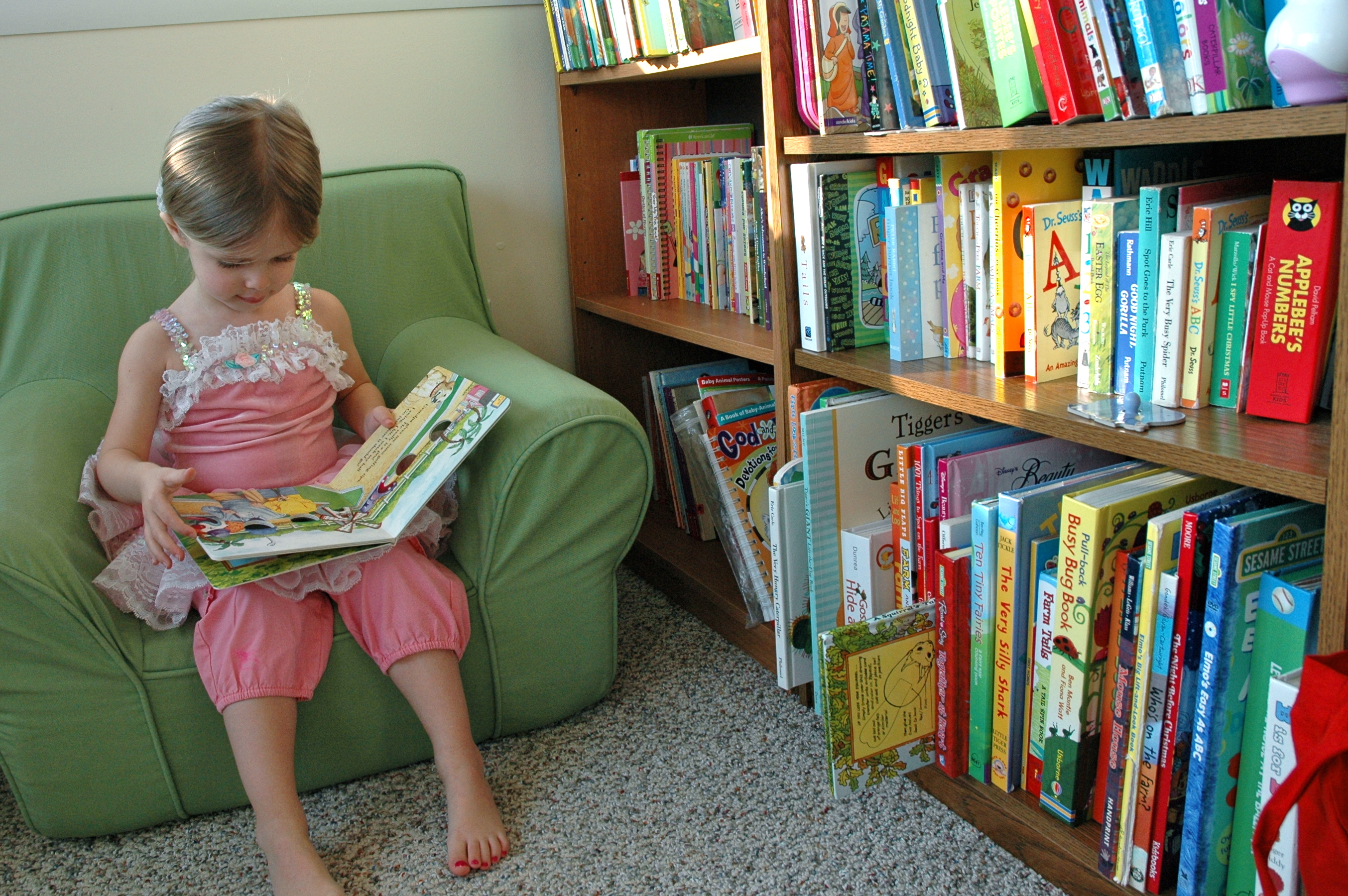As it turns out, Rod Blagojevich ain't all bad.
Well, of course our former governor did do some things that had lasting impact in the state, although the only I can think of offhand is open-road tolling. The new one I read about in Freakonomics is a bill in which every child in Illinois would get a book a month until reaching the age of five. This literacy initiative was intended to increase the reading test scores of children in lower grades by giving them their own state-funded library of 60 books.
The bill didn't pass.
Blagojevich believed that simply having books in the home would factor in future success: "When you own [books] and they're yours, and they just come as part of your life, all of that will contribute to a sense . . . that books should be part of your life" (159).
That's a really nice sentiment that, I'll admit, I readily believe. I grew up surrounded by books, and I am a pretty accomplished reader. We valued books for our own boys when they grew up - enough to have a pretty substantial library - and both my boys turned out extremely literate with high test scores. So, just having books around the house makes for reading success? I should think so since it generally has been my experience.
Not so fast my bookworm friends!
In this Freakonomics chapter entitled "What Makes a Perfect Parent?", I also learned about some statistical terminology and what data miners do to make some assumptions about survey results.
The chapter asks the question of what factors go into good parenting, the result of which should hopefully be a well-adjusted, college and career ready adult. Since it is difficult to gather data on the well-adjusted part, the researchers stuck to the one factor they could measure, literacy, by looking at reading test scores.
Here's the interesting and subtle statistical tidbit I learned - the difference between correlation and causation. In analyzing the data of Chicago Public School children who were applying to school choice lotteries, researchers found correlations between children who had higher reading scores also tended to have books in their homes. A correlation ONLY means that we see that there is a tendency that both these factors are often true. Does that mean one thing is the result of the other? No. That describes a causal relationship. Does this mean that there are no high reading scores from children who don't have books in the home? No. Could a causal relationship be worked out through factors that led the books to be in the household? Yes. Families who value reading and education who also have means to do so are likely to buy books for the home. So the value for reading is passed down not so much by the objects themselves, but perhaps by the actions, values, and beliefs of the parents that led those books to be there.
So Blago, your heart was in the right place on that one, but perhaps the $26 million pricetag (and a brief lesson in regression analysis) defeated the bill.


As a student myself, I completely agree that reading helps with our tests and even our ability to write essays. Whenever I stop reading or claim that "I don't have time anymore", my writing in school starts to go downhill and I don't write as well. I'm growing up in a household where my parents and the majority of my family didn't have the oppurtunities to attend or finish their schooling. My parents want me to do well in school and they want me to try, but I wouldn't say they're extremely strict about my grades. I do it on my own. I try my best and read even when my parents aren't always buying books. The other half of your blog where it talks about correlation and causation helped me understand more because I don't really like or understand graphs. The correlation I believe yes it's true is where students have high testing scores and they have a ton of books at home which makes sense. But, I also believe that sometimes kids do amazing on tests even when they simply don't have books at home. This is all very interesting!
ReplyDeleteUpon reading your blog I didn't know that Blagojevich is actually a good person, or that he had good intentions. When ever I hear Blagojevich's name all that come to my mind is that he's been in a lot of trouble with the government and that he's always on some case in court or something around those lines. I didn't think that he actually did something good to be honest. I really loved the idea of each child under the age of 5 would get a book a month. I would think that if that bill would have been passed that a lot of children would have benefited. I think I would have benefited myself. I personally love reading and it relaxes me. But I really don't like going out of my comfort zone when it comes to reading. I like reading what I'm used to reading. I also like how you bring out the idea of hold on book worms. The fact even if the books would have been given to the children every month doesn't mean that they would get good scores. It matters on how you were taught by your parents and that if education is a very important role in this. I like how you mention the idea of the book but I also like how you contradict it by using how your parents teach you.
ReplyDelete